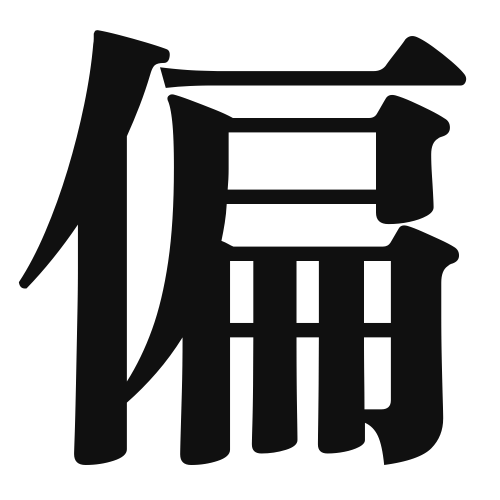1. Overview of Meaning
The kanji “偏” (hen) generally means “partial” or “biased.” It can refer to something that is not balanced or is leaning towards one side, both in a literal and metaphorical sense.
2. Formation and Radical
Formation of the Kanji: The kanji “偏” is a compound character that combines elements to convey its meaning. It consists of the radical “偏” (which indicates a side or bias) and the phonetic component “扁,” which contributes to its pronunciation.
Radical: The radical for “偏” is “偏” itself, which signifies the concept of being partial or leaning towards one side.
3. Examples of Usage
Common Words and Phrases: Some frequently used words that include “偏” are “偏見” (henken – prejudice) and “偏差” (hensha – deviation).
Example Sentences in Daily Conversation:
- 彼は偏見を持っている。 (Kare wa henken o motte iru.) – He has a prejudice.
- このデータには偏差がある。 (Kono deeta ni wa hensha ga aru.) – There is a deviation in this data.
4. Synonyms and Antonyms
Similar Kanji: A similar kanji is “片” (kata), which also means “one side” but is often used in contexts like “片方” (katahō – one side) and does not carry the same connotation of bias.
Opposite Kanji: The opposite kanji is “均” (kin), which means “even” or “balanced,” indicating a lack of bias or partiality.
5. Cultural and Historical Background
Relation to Japanese Culture: The concept of “偏” is significant in Japanese culture, where balance and harmony are highly valued. Bias or partiality is often viewed negatively.
Proverbs and Idioms: An example of an idiom that reflects this concept is “偏見は心の障害” (Henken wa kokoro no shōgai), which translates to “Prejudice is a hindrance to the heart,” emphasizing the negative impact of bias on one’s perspective.
